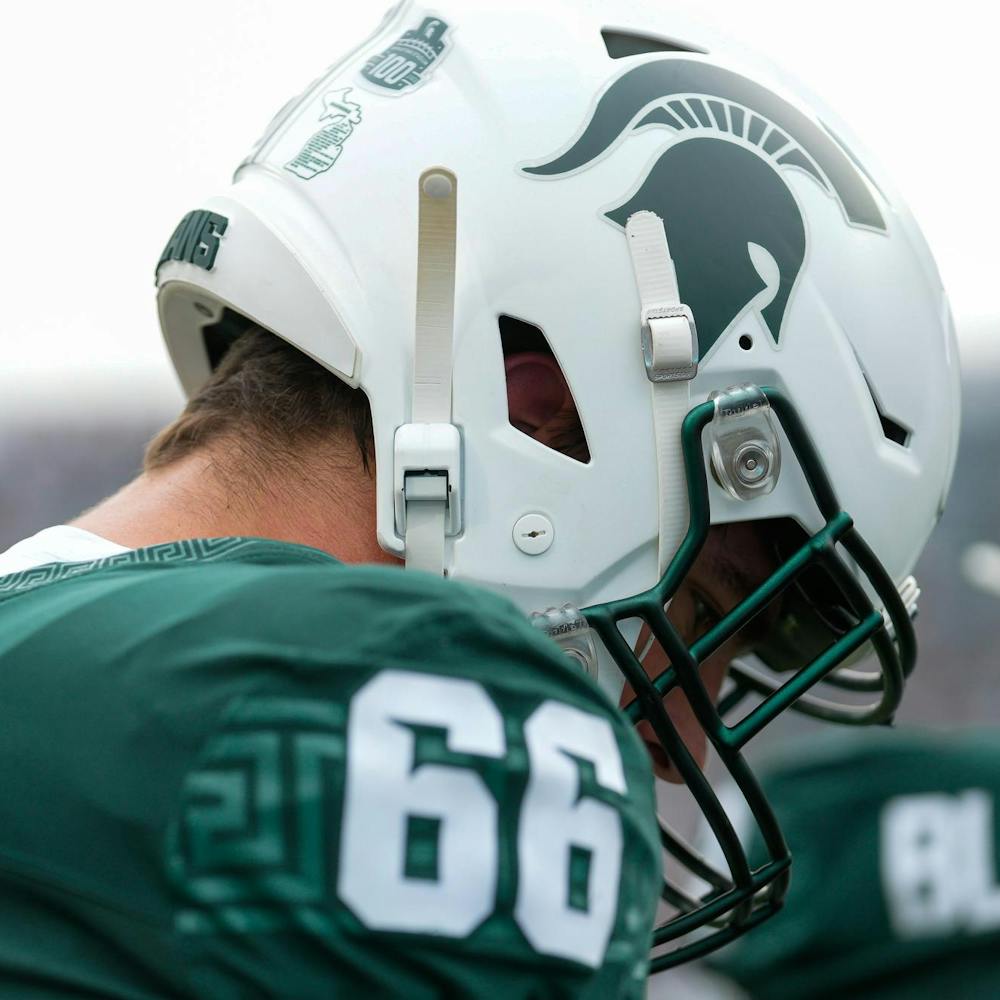I did not choose to get off the Capital Area Transportation Authority bus Wednesday three stops before my usual one. It was cold - I had already lost one mitten - and my house is far enough from the nearest bus stop. No, I ran from the bus that day - three stops before my own - because I was in fear of my life.
An altercation between a few riders turned ugly. Nobody exiting the bus with me lived near the bus stop where I found my escape.
It was a sad exit from the bus that usually nods me to sleep with its comfort and warmth.
On any other day, I might have looked around and smiled, but not this day.
The racial tensions upon that route were steamier than the exhaust pumping out of the bus tailpipe. You could feel it. Groups separating seats between them, one man yelling, “That brother is not respecting me,” his girlfriend telling him he will go to jail if he does this again, and everyone around him thinking, “What is the ‘this’ he is going to do again?”
The angry man stood not too far from me. He had something in his pocket, something he said he planned to use. He proceeded to push his way to the back of the bus, where a group of young people sat. He asked, “It’s a color thing ain’t it?” Soon after those words were spoken I got off.
I saw, within minutes, people not wanting to look at one another. I looked down the greasy, muddy aisle. I didn’t want the girl standing next to me to think I was “being disrespectful.” That is the way it felt on that bus. The seats became lines you just didn’t cross. For five minutes, I felt like a rich, skinny white girl who didn’t know diddly about anything. Maybe that’s lame, but if there was any time to have that feeling, it was during that bus ride.
As far as I am concerned, nobody cares to listen to my story. I learned that others have experienced similar rides.
Upon calling the East Lansing Police Department, I was put on hold halfway through my tale. I was transferred to someone else between the part where I mentioned the man may have had a weapon and how scared everyone seemed. And within 20 minutes, I had told my story to three different people. It was then that someone suggested I call the other police department. “Perhaps they could better deal with this,” the woman said. And before asking her why she believed another police department could “better deal with this,” I was told goodbye with a sound of a click.
An officer at the MSU Department of Police and Public Safety was a little more compassionate. But I think she had me mistaken for an idiot, because she told me I would be better off calling CATA, rather than the police. Perhaps, I thought, I would be better off writing a column to alert people of the chain of misinformation.
But I didn’t end it there. I dialed CATA customer service. After holding for a bit, I reached a recording. CATA’s customer hotline is open from 7 a.m. to 7 p.m. on weekdays, and whoops for me, it was 6:15 p.m.
It’s common these days to hear, “Hold please, I’ll transfer you, punch this number to reach this department,” and “Please call during business hours.” It’s also common for, “It’s a color thing, I was in danger, they had a gun,” and “Perhaps they could better deal with this.”
And yes, I realize this isolated incident is far from our everyday problems, but it does address the bigger question: Why was the racial tension on the bus so thick among people who seemed to not be talking?
Racism, is back folks, and it has taken a seat on a bus near you.
I was wise enough to keep in mind CATA might not take me seriously. I planned on calling CATA after I called the police - expecting to push numbers for quite some time. And if I did actually get through to a CATA representative, I imagined my story being turned into a message. It would move from being a Post-it note, to being a complaint slip and later a gum wrapper.
In my dreams, I see a police officer aboard the busiest CATA routes during their busiest running times, to ensure safety - the signs on the buses aren’t being enforced.
The problem on that bus was the people riding on it. I don’t know where they came from, or what kind of lives they lead, but CATA needs to make itself aware of dangers facing passengers. And as for the law official who asked me what I think the police can do, well, you can start by taking the initiative to answer your own question.
In everyday interactions with students and friends, discrimination and stereotypes are often hard to point out. Most people do not make conscious decisions to discriminate against each other. I think the problem nowadays is practicing what is preached. Although most of us have been taught at a young age that discrimination is wrong, we still have a hard time doing anything about it.
Stereotypes are not being broken down, they’re simply being talked about. I would have made my voice loud and clear, had that man been there without a weapon - that is what disgusted me the most. I know riders on that bus wanted to cut that tension with, not a knife, but their voice. We were afraid. I wish all police officials could have seen people’s faces on that bus. We wanted off that route. We wanted to get rid of that route. I could tell from the one time that I looked up - to leave.
Heather Wilson, a State News copy editor, can be reached at wilsonhe@msu.edu.






